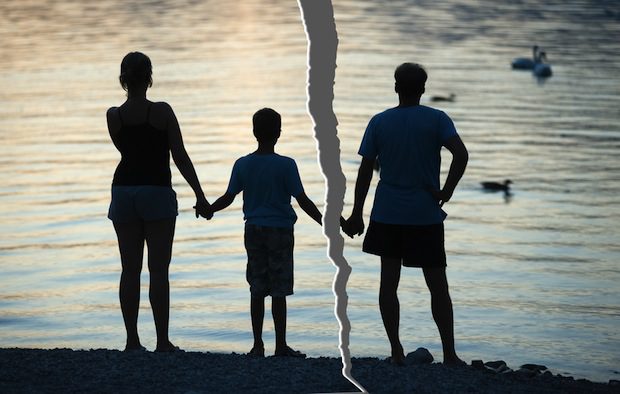Parenting: the North-South Divide

Sociologist Brad Wilcox and psychologist Nicholas Zill have a new study out showing that families in the northern half of the United States are more likely to be headed by two parents than those in the Southern half. From the NYT’s take on the study:
It’s not just a red-blue political divide, either. There is a kind of two-parent arc that starts in the West in Utah, runs up through the Dakotas and Minnesota and then down into New England and New Jersey. It encompasses both the conservative Mountain West and the liberal Northeast.
Single-parent families, by contrast, are most common in a Southern arc beginning in Nevada, and extending through New Mexico, Oklahoma and the Deep South before coming up through Appalachia into West Virginia.
These patterns — which come from a new analysis of census data — are important because evidence suggests that children usually benefit from growing up with two parents. It’s probably not a coincidence, for instance, that the states with more two-parent families also have higher rates of upward mobility.>
What’s interesting is that the data don’t allow for easy-peasy culture-war conclusions. They upend conventional wisdom. More:
Mr. Wilcox and Mr. Zill also point out that two-parent families tend to be more common in states with predominantly white populations. But race is hardly the only explanation for the patterns. White single-parent families have become much more common in recent years. And in the Deep South, single parenthood is common among both whites and blacks.
I often puzzle over the fact that the greater religiosity of the American South does not correspond with more conventionally moral behavior, at least in terms of sexuality, marriage, and childbearing. Last night at bedtime, I read Flannery O’Connor’s short story “Greenleaf,” which reminded me how mysterious the spiritual economy of the Christian God is. The story is about Mrs. May, a widow who owns a farm in the Deep South, and her relationship with Mr. Greenleaf, the farm’s white-trash overseer is Mr. Greenleaf.
Mrs. May likes everything in her life to be clear, crisp, and well-ordered. Everybody and everything fails her; she is a perpetual victim of the world failing to be what it ought to be. She identifies as a Christian, even though she doesn’t really believe it, because it is the socially proper thing to do, and because she wants her grown, useless sons to find decent wives there. The Greenleaf boys, by contrast, have married and are making something of their own lives in the dairy business — a fact that infuriates Mrs. May, because no-count people like the Greenleafs don’t deserve to prosper.
Mrs. May, of course, is a Pharisee. The Greenleafs are a hot mess, but they are vessels of grace. Mrs. May one day comes across Mrs. Greenleaf rolling on the ground out in a field, in a religious ecstasy, praying for the suffering people of the world. Mrs. May chastises her, judges her to be a religious nut, and tells her she ought to be back home washing clothes and doing something productive. As often in O’Connor, the prideful protagonist comes to a violent epiphany.
Why am I bringing “Greenleaf” up here? As a reminder to myself, and to others, that on a spiritual level, we should be careful interpreting data like this. It is certainly the case that we can and should make sociological and economic interpretations, but to put too much emphasis on discerning the inner spiritual lives of people on the basis of the outward appearance of their lives is to err. True, we ought to be able to see good fruits in people’s lives, and we do see that in “Greenleaf,” though we also see the bitter fruits of the conventional “good Christian” life that Mrs. May and her boys lead. Still, there is an irreducible mystery here. I can think of a poor family I once knew, most of whom are dead now, who were not churchgoers, and who were a hot mess in the Greenleaf mode. Yet the patriarch, at least, was one of the most genuinely Christian men I have ever known, a man who would give you everything he had (and he didn’t have much) out of pure goodness. I don’t even know if he had been baptized, and I am sure he had no formal religion. But that man was a vessel of divine grace, in ways that cannot be captured in on a sociologist’s graph.
Subscribe for as little as $5/mo to start commenting on Rod’s blog.